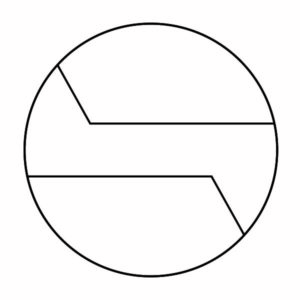Molecular Pathology and Diagnosis of Cancer
22–27 November 2015
Wellcome Genome Campus, Hinxton, UK
Summary
A joint initiative of the Wellcome Genome Campus and the Royal College of
Pathologists and aimed primarily at trainee pathologists or
haematologists, this residential course inaugurated in 2012 aims to
introduce participants to the rapidly evolving field of the molecular
diagnosis of cancer. Clinical scientists entering the field of molecular
diagnosis are also encouraged to apply.
The course consists of a series of practical, laboratory-based sessions
covering current diagnostic methodologies, followed by talks and
demonstrations of next generation sequencing platforms, including the
latest developments in genomic technologies. In addition, the ethical,
societal and practical implications of introducing genome-wide genetic
analyses to the clinic will be considered.
The course will host a number of leading national and international
speakers who will give lectures on the molecular pathology of a number of
cancers, including lung, colorectal, leukaemia, myeloma and others.
PLEASE NOTE: Limited bursaries are available for
clinical and academic applicants from anywhere in the world to attend
this course and are awarded on merit. In addition, CPD accreditation will
be sought from the Royal College of Pathologists.
Feedback from the 2014 course:
“I really enjoyed the course. It made me think of many projects that
I would like to discuss with my colleagues.”
“I am really satisfied and happy with the learning I have drawn from
this course. There are many practical aspects and personal learning very
much applicable to the research project I am working in. The networking
that we have had has been very interesting and the discussions very
enriching. Thank you so much, it has been a fantastic week.”
“Please convey my thanks to the organisers and speakers/scientists
who made the course informative and enjoyable.”
“The course organisation is excellent.”
Programme
The programme will include lecture and laboratory/computer-based
practical sessions covering the following topics:
- Standard and real-time PCR
- DNA electrophoresis
- Capillary (Sanger) sequencing
- Fluorescence in situ hybridisation (FISH)
- State-of-the-art next-generation sequencing technologies
- Target enrichment approaches
- Bioinformatic analysis for mutation detection
It is anticipated that at the end of the course, participants will have an understanding of current and future molecular methodologies applied to cancer diagnosis and be able to participate in the impending revolution in the practice of clinical pathology and haematology. Additionally, the course hopes to inspire trainees to follow a career in genomic cancer medicine and research.
CPD Accreditation
CPD accreditation will be sought from the Royal College of
Pathologists.
Instructors and speakers
Course instructors
George Vassiliou Wellcome Trust Sanger Institute,
Hinxton, UK
Anthony Bench Addenbrooke’s Hospital, Cambridge, UK
Bridget Manasse Addenbrooke’s Hospital, Cambridge, UK
Peter Ellis Wellcome Trust Sanger Institute, Hinxton,
UK
Michael Quail Wellcome Trust Sanger Institute, Hinxton,
UK
Elli Papaemmanuil Wellcome Trust Sanger Institute,
Hinxton, UK
Guest speakers
George Vassiliou Wellcome Trust Sanger Institute,
Hinxton, UK
Nitzan Rosenfeld Cancer Research UK Cambridge Institute,
UK
Manuel Salto-Tellez Queen’s University Belfast, UK
Mark Arends University of Edinburgh, UK
Ian Cree Warwick Medical School, UK
James Brenton Cancer Research UK Cambridge Institute,
UK
Anna Middleton Wellcome Trust Sanger Institute, Hinxton,
UK
Marc Tischkowitz University of Cambridge, UK
Ming Du University of Cambridge, UK
How to apply
Prerequisites
Applicants should be trainee pathologists/haematologists or clinical
scientists considering a career in molecular pathology/diagnosis.
Cost
The
course is subsidised by the Wellcome Genome Campus Advanced Courses
and
Scientific Conferences Programme. This is a residential
course and
there is a fee of £730 towards board and lodging for
non-commercial
applicants. Please contact us for the commercial fee.
Applications
Applications
for this course can now be completed online. If you have
any problems
with the online application process, please contact us.
Please note: Applications
must be supported by a
recommendation from a scientific or clinical
sponsor (e.g. supervisor or
head of department). A request for a
supporting
statement will be sent
to your nominated sponsor automatically during
the application process.
Applicants must ensure that their sponsor
provides this supporting
statement by the application deadline. Applications without a supporting
statement cannot be considered.
Deadlines
Deadline for Applications: Closed
Cost
Bursaries
Advanced Courses are subsidised for non-commercial applicants from
anywhere in the world. Limited bursaries are
available (up to 50% of the
course fee) and are awarded on merit. If you would like to apply for a
bursary, please complete the bursary section of the online application
form.
Please note that both the applicant
and sponsor are required to provide
a justification for the
bursary as part of the application.
Bursary terms and conditions
UK Courses (held at the Wellcome Genome Campus, Hinxton,
Cambridge)
A
limited number of bursaries are available for each course. These are
awarded by the selection committee according to merit. The bursary
covers a maximum of 50% of the course fee, though in exceptional
circumstances an application for the total course fee may be considered.
Where there are many bursary applications, the selection committee may
issue smaller amounts. We cannot assist with travel costs to attend UK
courses.
Overseas Courses (held outside of the UK)
A
limited number of bursaries are available for each course. These are
awarded on merit to cover travel, accommodation and sustenance. The
maximum award for travel (economy class) will be £750.
Bursaries can be applied for as part of the course application form.
Applicants
will be notified of a bursary award along with their place on
the
course, usually within one month of the application deadline. The
decision of the selection committee is
final.
.

